Preserving Elne’s historic maternity: a public or private issue?
The future of the building is uncertain, it needs a 870,000 euros renovation. The site “represents the living memory of a Europe immersed in a cruel war”, says a historian.
Protestante Digital · ELNE · 02 OCTOBER 2023 · 19:50 CET
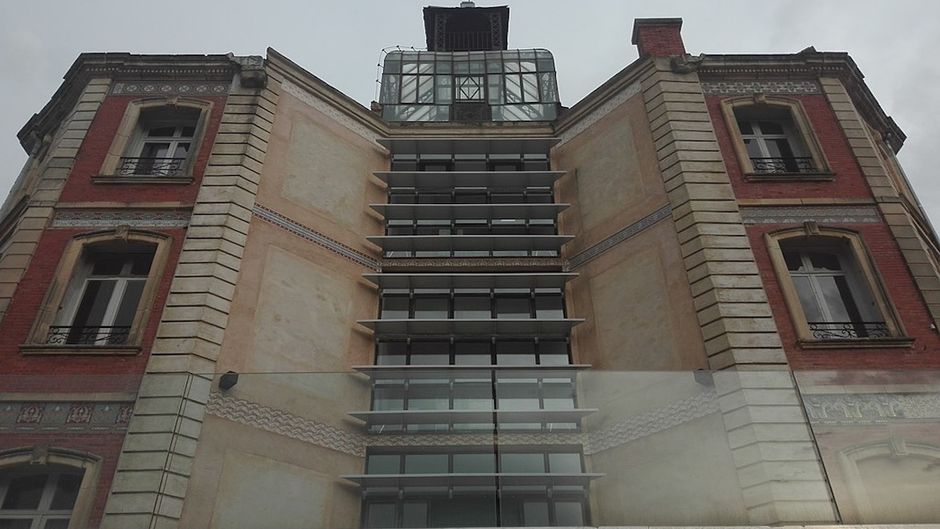
Money does not understand history, but heritages can become simply a matter of figures. That is what could happen to the Elne maternity home, in Southern France, which needs around 870,000 euros for an in-depth renovation.
Turned into a museum, the maternity home has been partially closed since last April due to cracks in the structure.
Nicolàs Garcia, the mayor of the town (Elnse is south of Perpignan and close to the Spanish border), told newspaper L'Independant that they had noticed "the presence of suspect cracks in the staircase", which is why they asked a team of experts to carry out an assessment of the damage.
The issue is the lack of budget, so the Elne City Council has promoted a campaign to raise the necessary funds. "Everyone should give whatever they can: one euro, two, a thousand". An urn has been set up at the entrance of the maternity home, which continues to host an exhibition open to the public on the ground floor and in the gardens.
An bank account for contributions has also been made available. The town hall says among the giving is an anonymous donation of 10,000 euros.
The French government is expected to cover half of the 870,000 euros cost of the work, but the city still says it has not enough money to cover the remaining half.
The old maternity home has also been signed up for a voting campaign of insurance company Axa, which allows people to choose between different historic facilities in different regions of France until 16 October, and promises to allocate up to 30,000 euros to the one with the highest number of votes.
The maternity home is located in the French Région Sud-Ouest.
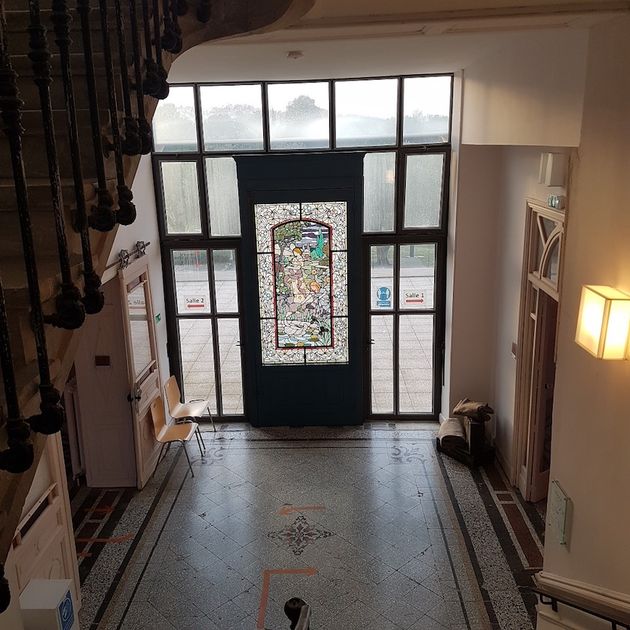
A matter of memory
When asked why it is important to restore the maternity home, Josep Lluís Carod-Rovira, a Catalan historian focused on the research and dissemination of Protestantism, told Spanish news website Protestante Digital that the institution "represents the living memory of an Europe immersed in a cruel war, along with genocides and racial persecutions, and, at the same time, it is a testimony to human solidarity beyond ideology, beliefs and nationalities".
"It was crucial in guaranteeing the lives of hundreds of children and their families, fugitives from persecution, such as republicans fleeing from Spain, Jews in France, Roma people, etc., who were all subjected to repression", he adds.
597 children were born in the Elne maternity home, most of them refugees from the Spanish Civil War, World War II, and children of Jewish women. The miracle happened thanks to the work of Elisabeth Eidenbenz, a Swiss Protestant teacher and daughter of a Lutheran pastor - who many in the mainstream media simply refer to as an "activist" for peace.
"We must not forget that the maternity home is closely connected with the effects of the Civil War and the pain and injustice of exile. Furthermore, it was a refuge for some Jewish women fleeing from Nazi barbarism", recalls Joaquim Campistron, a historian of figures such as George Lawrence. In Caldes de Montbui, the town were Campistron lives in Catalonia (Spain), he promoted a tribute to Elisabeth Eidenbenz: now a one of its viewpoints has the name of the nurse.
According to Campistron, "it is necessary to remember Elne's maternity home for two basic reasons: to know that wars don't end when the hostilities are over, and that some people do not resign to the worst but do what they can to save what they can".
"We realise how fragile the memory of human beings is. We usually only want to remember pleasant things, leaving aside the sad and painful ones, and even more so when they are not close to us personally [...] Approaching pain provokes, among other things, thinking, a much neglected and necessary practice in today's society", adds Campistron.
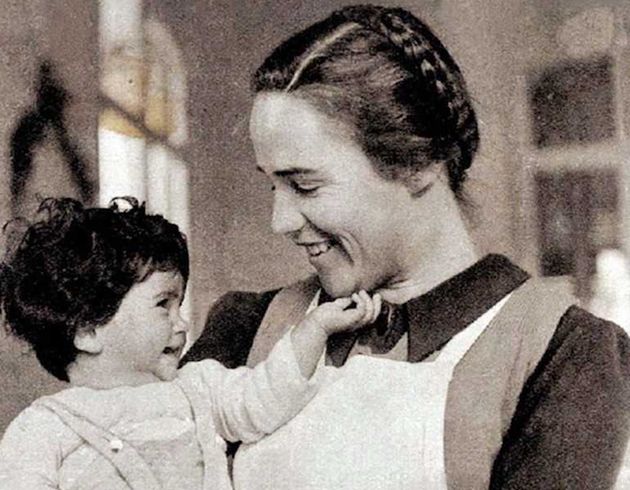
The Eidenbenz legacy
In their book Essence and Resistance (in Spanish, Esencia y resistencia), historian Evangelina Sierra and journalist Joel Forster recount a trip to the Elne maternity mome in 2011, and record statements by Elisabeth Eidenbenz, shown in a video broadcast at the museum.
"The first birth was a girl, her name was Pepita. We received mothers four weeks before the birth. We had food and milk here [...] Germans came for check-ups and we had Jews here. We changed their names. We called one of them Antonio, but he was in fact a German Jewish child [...] I am happy and content with this work. It had a big impact on my life", Eidenbenz told historians later in life.
Streets and places in Elne bear her name, but also in cities and municipalities such as Barcelona, Esplugues de Llobregat, Palafrugell, Vic and Caldes de Montbui, recalls Carod-Rovira. In 2006 she was awarded the Cross of Sant Jordi, the highest award given by the regional government of Catalonia.
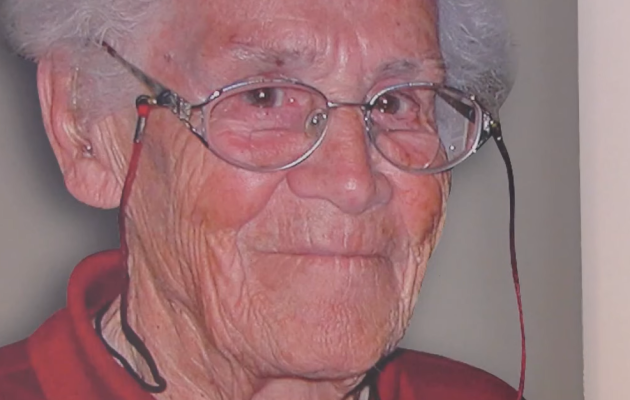
A picture of Elisabeth Eidenbenz later in life, in the Elne maternity. / Photo: RTVE “She did whatever was in her hands”
The story of the refugee mothers fromr Spain, the French Jewish mothers, and all the children saved by Eidenbenz in Elne is told in a TV report produced by the Spanish public television in 2023, for the evangelical programme Buenas Noticias TV (Good News TV), in Spanish language (see video below).
"Eidenbenz did whatever was in her hands", underlines says Campistron. "It is necessary to consider that she did not have much training or experience, as she was a teacher and not a nurse or midwife. She had a broad mind due, above all, to her desire to help others".
"Without the religious convictions of Eidenbenz, of the Quakers, who were so committed in the Civil War, and those of some of the promoters of the Red Cross, founded by the Swiss Protestant Henry Dunant, it is not easy to understand the reason for that kind of solidarity", points out Carod-Rovira.
For the historian, "today it is still difficult to understand that the history of religions is part of the national history of a country and that, without studying their role in society, it is impossible to have an objective vision and knowledge of the reality of a country".
"Eidenbenz's tenacity, along with the strength of her youth, allowed her faith to have a practical expression for the benefit of others. She devoted her life to help the most helpless and needy in society: women and children [...] Her humanitarian work did not end at the Elne maternity home [closed by the Nazis in 1944], but continued throughout her life", says Campistron.
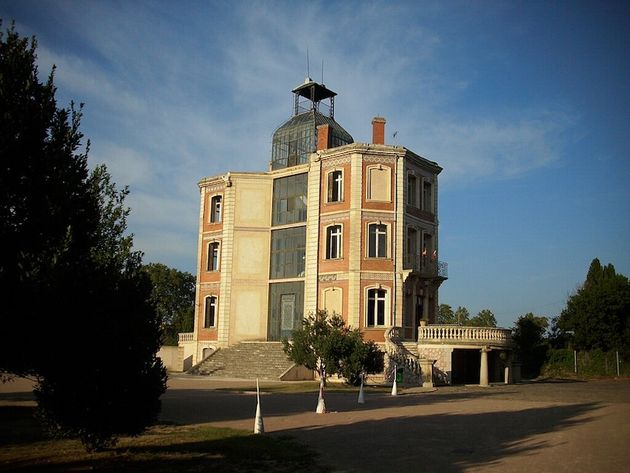
In Elne, neighbours are even considering opening micro-sponsorship campaigns to raise the money for the renovation.
Mayor Nicolàs Garcia does not rule out knocking on the door of the Spanish government and the regional government of Catalonia, where most of the women who found refuge in the place came from. "The history of humanity is explained here. This place should not be closed", he stresses.
Private or public aid?
Historian Carod-Rovira considers that "private contributions to keep alive the memory of initiatives such as the Elne maternity home should not be rejected, as they can provide important help with public resources, which are always scarce".
However, the Elne City Council has made it clear that it expects the French government to contribute at least half the cost of the work.
Carod-Rovira agrees that "the public authorities, and not private companies, are always primarily responsible for historical memory".
Published in: Evangelical Focus - cities - Preserving Elne’s historic maternity: a public or private issue?
More News
Most read
Since you are here…
Evangelical Focus is a news and opinion platform that brings together Christians from across Europe and other parts of the world. We need the support of our readers to make this media project sustainable in the long term. You can support our work! Read about Evangelical Focus’s sustainability here.
Would you like to support the work of Evangelical Focus?
Use one of these methods. You can also transfer your donation to “Areópago Protestante / Evangelical Focus” IBAN: ES8521000853530200278394 (Swift / BIC: CAIXESBBXXX). Subject: “Donation Evangelical Focus”
